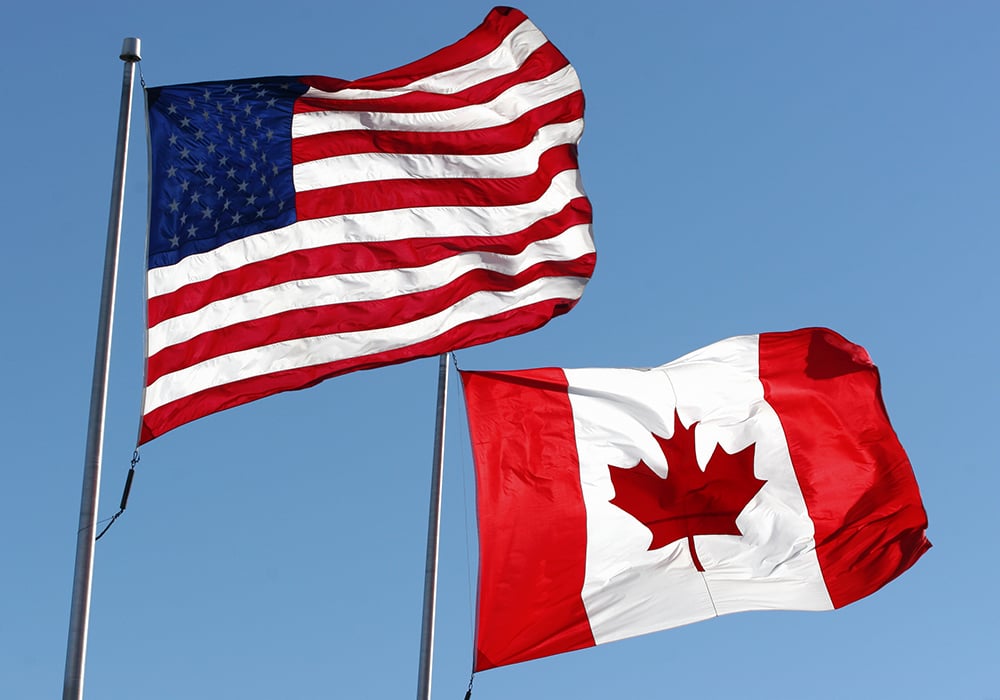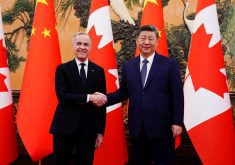Will Donald Trump impose 25 per cent across-the-board tariffs on imports from Canada and Mexico?
For Manitoba farmers, that’s the billion dollar question — or more precisely $1.17 billion, as the value of the tariffs would be based on the latest full calendar year of agricultural exports to the U.S.
The effect would be to immediately undermine the competitiveness of Canadian exports, making products from non-tariffed nations more attractive.
Read Also

Tie vote derails canola tariff compensation resolution at MCGA
Manitoba Canola Growers Association members were split on whether to push Ottawa for compensation for losses due to Chinese tariffs.
What makes this situation such a head-scratcher is that in many cases no handy substitutes exist, meaning U.S. businesses and consumers are going to suffer the most, since tariffs are paid by the buyer, not the seller.
That’s going to undermine the domestic economy of many Americans and challenge the profitability of many U.S. businesses.
One wonders if the Trump administration will become more pragmatic once they dig into things a bit. Much of the U.S. trade deficit with Canada is represented in products such as energy and potash that are inputs to their own economic activity and growth. I’m doubtful many farmers in the U.S. Midwest would be pleased to get a 25 per cent boost to some of their key costs.
We’ve spent decades building a continental economy. Few have benefitted more from it than farmers and the agrifood sector.
The first step was the 1965 Canada-U.S. Auto Pact, which limited itself to the automotive sector. In 1986, the two countries entered into negotiations for a broader trade agreement and the result was the Canada-United States Free Trade Agreement (CUSFTA) which came into effect in 1988.
That was superseded by the North American Free Trade Agreement (NAFTA) in 1996, which brought Mexico into the fold.
In 2018, during Donald Trump’s first presidency, this was replaced by the Canada-United States-Mexico Agreement (CUSMA).
The end result was impressive. It’s one of the world’s largest free trade zones, encompasses a population of 510 million and has an economy of US$30.997 trillion nominal GDP. To put that in perspective, that’s nearly a third of the global economy.
But now the era of rules-based free trade may be ending. And while it may feel surprising to us, perhaps it shouldn’t be. Eras both begin and end, sometimes painfully.
Consider the 1980s and the Reagan/Thatcher revolution. That heralded the end of the postwar liberal consensus and the dawn of globalization. It was a painful time for many. Just ask a British coal miner or a U.S. air traffic controller, both groups which found themselves on the wrong end of a governmental shift.
Again, the British seem to have led the way, with their withdrawal from the European Union in 2020, dubbed Brexit. Opponents of the move suggested it was an incoming economic apocalypse, but the facts don’t really support that.
There was definitely an initial dip in trade. But three years later the BBC reported that both exports and imports had recovered to pre-pandemic levels. Interestingly the BBC also noted an uptick in domestic food producers’ fortunes, to the tune of £5 billion.
The situation obviously doesn’t completely translate to this side of the Atlantic, but it does suggest our economy would adapt.
Another thing that suggests hope from our recent trade history is when China banned Canadian canola imports from the two largest grain traders. It showed that the market rebalanced relatively quickly, with other countries supplying China and Canadian canola flowing to new markets.
Regardless how this ‘Amerexit’ from the North American free trade alliance plays out, it’s probably going to be a bit messier, and less efficient, than the system we have enjoyed. And if the British experience plays out here, it might be harder for smaller firms to navigate the increased bureaucracy and red tape of trade with the U.S., as the BBC also reported.
Manitoba farmers will need to take this uncertainty into account, but they will no doubt forge on in the coming growing season.
In the end, we all must live in the world we live in.
















